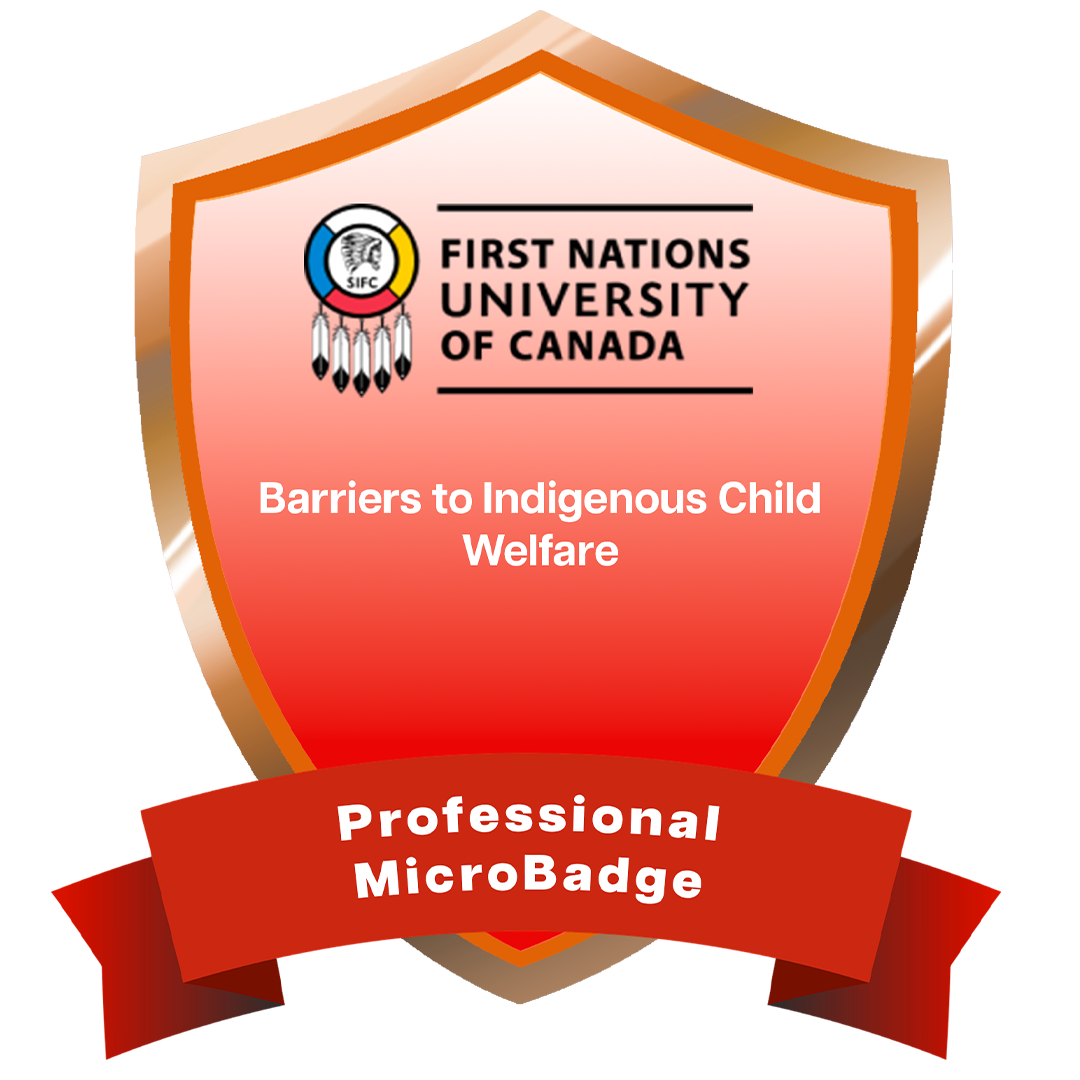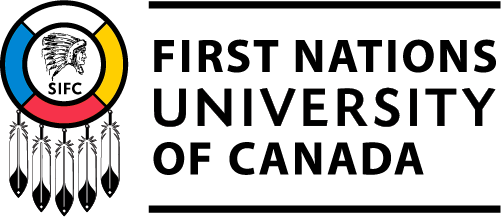ICCW002 - Barriers to Indigenous Child Welfare
Course Description

This course explores the government’s responsibilities in reconciling its harmful colonial past and ongoing unjust practices directed at Indigenous children and their families. As such, this course will draw attention to these ongoing practices, such as the federal government's continuing reticence to pay compensation to Indigenous Peoples and communities as ordered by the Canadian Human Rights Tribunal.
Systemic racism in Indigenous child welfare practices will be explored as part of the colonial oppression that governments impose on Indigenous children, their families, and communities today. Colonial practices and policies on Indigenous Peoples around the world are a constant presence with long-lasting impacts. To protect the rights of Indigenous Peoples and address the impacts of global colonization, in 2007, the United Nations adopted the United Nations Declaration on the Rights of Indigenous Peoples (UNDRIP).
Then, in 2015, the Truth and Reconciliation (TRC) of Canada released its 94 Calls to Action. The UNDRIP and the TRC Calls to Action are significant road maps to reconciliation for Indigenous child welfare, but also for overall reconciliation for provincial, territorial, and federal governments.
TRC Calls to Action
 Full implementation of all five Calls to Action related to child welfare will accomplish many goals to improve Indigenous child welfare in Canada. If all levels of government monitor investigations, implement appropriate funding, and ensure that all individuals and groups that oversee child welfare are appropriately trained to do so, it will ensure that Indigenous children are not removed from the care of their families based on unsubstantiated reports of neglect. It would ensure that families are provided with the resources to care for their children instead of redirecting that funding to foster families, which is historically what has been happening.
Full implementation of all five Calls to Action related to child welfare will accomplish many goals to improve Indigenous child welfare in Canada. If all levels of government monitor investigations, implement appropriate funding, and ensure that all individuals and groups that oversee child welfare are appropriately trained to do so, it will ensure that Indigenous children are not removed from the care of their families based on unsubstantiated reports of neglect. It would ensure that families are provided with the resources to care for their children instead of redirecting that funding to foster families, which is historically what has been happening.
Implementing Call to Action 2 will keep all levels of government publicly accountable for funding and policy, as well as ensure that preventative programs and services are available. Implementing Jordan's Principle at all levels of government will ensure that Indigenous children and families receive the funding they need or immediate needs promptly so there is no delay in access.
Finally, implementing Call to Action 5 will ensure that families are provided with the resources (education, social programs, etc.) they need to be able to parent their children in a culturally responsive, and appropriate manner.
Learning Outcomes
Learners will gain the knowledge, understanding, skills, abilities, attitude, and awareness to:
- Describe current (colonial) Indigenous child welfare practices in Canada.
- Recognize the effects of colonial policies and practices on Indigenous child welfare.
- Recognize conditions on reserves that impact Indigenous child welfare and well-being, as a result of colonial policy.
- Describe the human rights case related to the federal government's deliberate underfunding of Indigenous child services.
- Identify the role that the Truth and Reconciliation Commission's Calls to Action have in undoing colonial policy.
Skills and Competencies
- Analytical thinking
- Cultural awareness
- Historical analysis
- Knowledge application
Summary
-
Number of hours: 4 hours total

-
Assessment: Themes two to four include brief knowledge check questions to assist the learner with recalling basic facts. At the end of the course, learners will need to pass the final quiz with a grade of 70% or higher to pass this course. Each knowledge check, including the final quiz, allows multiple attempts. Throughout this course, you will be prompted to respond to a self-reflection question as part of your learning experience. Record your responses in any manner you prefer. Your learning experience is yours and yours alone. An incomplete course will count as a fail.
-
Previous education required: None; this course does not have a required prerequisite.
-
Delivery: Online, self-paced
-
Completion timeline: Within 180 days from when you enroll in the course.
FAQ's
Is this course for everyone?
- Yes, this course is relevant to all people from all walks of life. The learners' life experiences will influence how they experience the course.
Some individuals and organizations may be GST-exempt.
- First Nations University of Canada is situated on the Star Blanket First Nation and is exempt from Provincial Sales Tax (PST). If you or your organization are exempt from Government Sales Tax (GST), please get in touch with icec@firstnationsuniversity.ca to ensure that your invoice is prepared accordingly.
I need financial support. What funding options does ICEC recommend?
- Check out our Funding Opportunities here.
Who do I contact if I need help?
- Check out ICEC's Learner Support page to see if your question is answered in the FAQs. If your question remains unresolved, feel free to complete the form with your question, or you may contact icec@firstnationsuniversity.ca for assistance with any questions. We are here to help! Support requests are received during regular office hours. Please expect a response within 24 to 48 hours.
Applies Towards the Following Certificates
- Indigenous Child Welfare Professional MicroCredential : Indigenous Child Welfare MicroCredential
